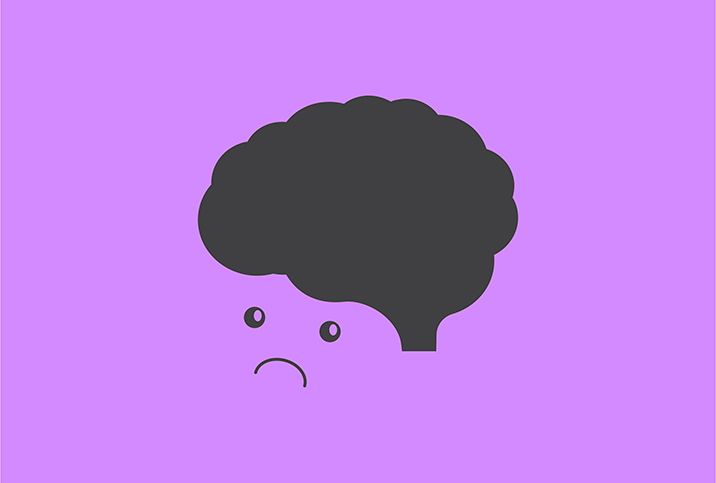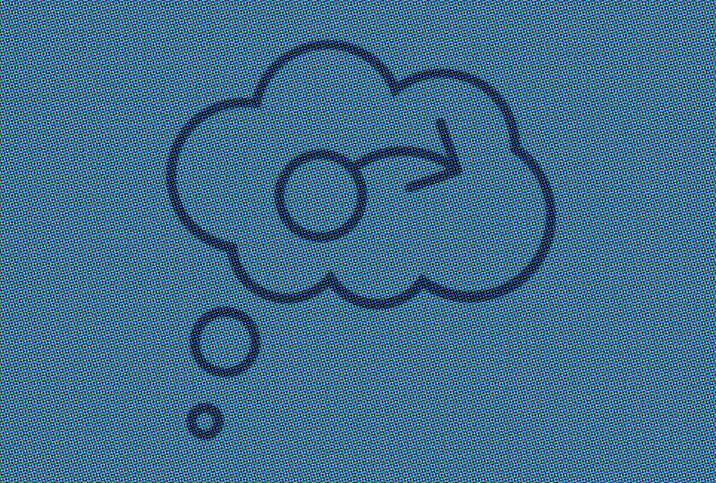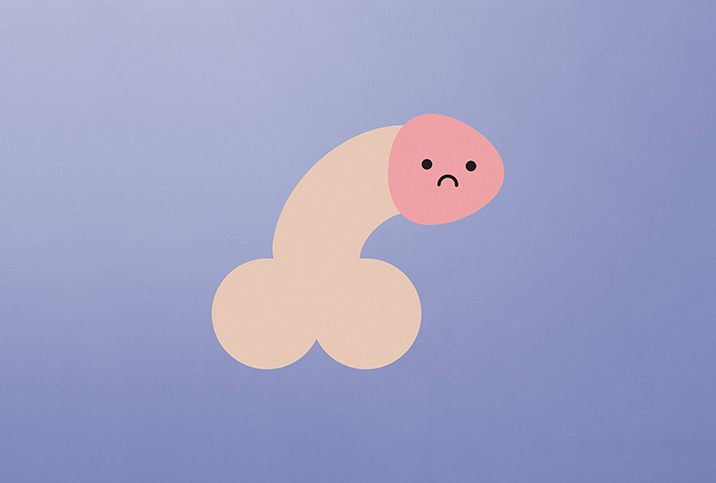Symptoms and Diagnosis of Depression and Anxiety

Mental health struggles such as anxiety and depression can make even getting out of bed or fulfilling day-to-day responsibilities feel impossible. The good news is that there are effective treatments available for both anxiety and depression—and there's no shame in reaching out for help.
According to the Anxiety and Depression Association of America, nearly 40 million people in the U.S.—or about 18 percent of the nation's population—are affected by anxiety orders. Medical experts have found that individuals who struggle with anxiety disorders often deal with depression as well. In fact, the association reported that nearly half of people diagnosed with depression end up also being diagnosed with an anxiety disorder.
If you have not personally dealt with anxiety or depression, the chances are that you know someone who has. That said, it's important to understand the signs and symptoms of these mental health conditions as well as the treatment options that are available for them.
Knowing the signs of depression
Despite common misconceptions, depression is much more than simply feeling down or generally sad. People with depression experience something much deeper than just feeling blue—it's not really possible for them to just "snap out" of it.
Mental health experts define depression, which is sometimes referred to as major depressive disorder or clinical depression, as a mood disorder that causes a persistent feeling of sadness and loss of interest. This disorder leads individuals to lose interest in things they once enjoyed such as spending time with family and friends, having sex, exercising or doing hobbies. In severe cases, individuals can even lose interest in living altogether.
Typically, depression comes in the form of "episodes." And while some people may only ever experience depression once, others may continue to have depressive episodes periodically throughout their lifetime.
The Mayo Clinic describes depressive episodes as when an individual experiences symptoms of depression throughout most of the day, nearly every day, for an extended period of time, which can vary from weeks, months or even years.
It's important to be aware of the signs and symptoms of depression so that you can better understand when you should reach out for help.
Some of the most common symptoms of depression include:
- Persistent feelings of sadness, emptiness or hopelessness
- Loss of interest in things you usually find enjoyable
- Trouble sleeping or sleeping too much
- Emotional outbursts of anger or irritability
- Anxiety
- A feeling of persistent tiredness and lack of energy
- Restlessness
- Difficulty concentrating, remembering things or thinking
- Feelings of worthlessness or self-loathing
- Unexplained physical aches and pain
- Thoughts about death, suicidal ideation or attempts at suicide
The exact causes of depression remain unknown. However, experts have found that biological differences, hormones, genetics and brain chemistry may play a role in causing depression.
For example, people with depression seem to have physical changes to their brains, according to the Mayo Clinic. While the significance of these changes is uncertain, research into what causes them is actively underway.
Changes in hormones may be involved in triggering depression. These hormonal changes can happen after pregnancy, during menopause or as the result of thyroid problems or other health conditions.
And, as is the case with many other mental illnesses, experts believe that depression runs in families. Research has found that depression is more common among people whose family members also have had depression, indicating that certain genetic traits might put some people at a greater risk of depression. Work is still being done to pinpoint which particular genes might be involved in causing depression.
Brain chemistry may also play a significant role in depression. Medical researchers are currently studying how neurotransmitters, which are naturally occurring brain chemicals, interact with the parts of the brain responsible for maintaining mood. Some believe that abnormally functioning neurotransmitters may be a contributing cause for depression.
Symptoms of anxiety
Most people will experience feelings of stress and anxiety at some point in their lives. However, for people with an anxiety disorder, those feelings are frequent and persistent—often causing excessive worry and fear about everyday things and interfering with daily responsibilities and activities.
While this anxiety is generally persistent throughout the day, it can sometimes manifest as a panic attack. A panic attack occurs when a person experiences intense feelings of anxiety, fear or terror, usually over the course of a few minutes. Panic attacks can take a toll both emotionally and physically.
There are many different types of anxiety disorders, including generalized anxiety, separation anxiety and social anxiety—just to name a few. Experts are unsure of what exactly causes anxiety disorders, although traumatic events are known to trigger anxiety disorders in people who are already prone to being anxious.
Common symptoms of anxiety disorders include:
- Nervousness or restlessness
- Feelings of panic or fear
- Having a persistent sense of impending danger
- Increased heart rate
- Rapid breathing
- Sweating
- Overwhelming worry
- Trouble concentrating or sleeping
- Gastrointestinal problems
- Feeling weak or tired
If you experience any of these symptoms persistently or frequently, don't hesitate to reach out to a mental health professional or your general practitioner for help.
Common threads between anxiety and depression
It is not uncommon for people who struggle with anxiety to also experience depression, and vice versa. Both anxiety and depression are known to cause symptoms of anxiousness; tiredness or weakness; restlessness; trouble sleeping; difficulty thinking or concentrating; and more. Risk factors are also similar.
Depression and anxiety can occur at any age, but they often begin in the teens, 20s or 30s. Research has found that there are a few common factors that may put a person at a greater risk of developing both anxiety and depression, including:
- Trauma: Studies have found that people who have been abused, especially in childhood, or experienced other trauma are more likely to develop depression or anxiety at some point in their lives.
- Family history: Anxiety and depression are most common among individuals whose relatives have also had anxiety or depression.
- Other mental health disorders: People with depression are more likely to develop an anxiety disorder, and vice versa. Individuals who have had an eating disorder or post-traumatic stress disorder are also more likely to experience anxiety and depression.
- Drugs or alcohol: Anxiety and depression can be worsened by the use or misuse of drugs or alcohol, according to the Mayo Clinic, as people attempt to self-medicate to manage the symptoms of depression or anxiety.
- Stress: A buildup of stress over time or a sudden major stressor, such as a death in the family or financial problems, can increase a person's risk for developing anxiety and depression.
When to see a doctor
If you're feeling depressed, you should make an appointment with a doctor or mental health professional right away. But if you know you need help and don't want to seek treatment just yet, be sure to communicate with friends and loved ones, and let them know what you're going through. To make sure depression doesn't get worse, it's particularly important not to isolate yourself and to lean on others for support.
As for anxiety, there may be instances when worries go away on their own and treatment is unnecessary. However, if they don't go away, worsen over time or get in the way of your daily life—reach out to a mental health or medical professional for help.
You should also get professional help if depression or anxiety start to get in the way of work or relationships, or if symptoms become uncontrollable, cause physical problems or lead to alcohol or drug abuse. If you have suicidal thoughts or behavior, seek emergency treatment immediately.
Getting treatment
Anxiety and depression are not easy disorders to live with. But the good news is that both of them are very treatable. The two most common treatments for anxiety and depression are psychotherapy and medication.
During psychotherapy, also known as talk therapy or psychological counseling, a patient works with a therapist to help reduce symptoms of anxiety and depression by talking through any underlying issues and coming up with ways to manage any symptoms that may come up in the future.
Medication can also be effective in treating anxiety and depression. In fact, some medications can be used to treat both disorders at the same time. According to the Mayo Clinic, some of the most common medicines prescribed for anxiety and depression are selective serotonin reuptake inhibitors (SSRIs), serotonin-norepinephrine reuptake inhibitors (SNRIs), tricyclic antidepressants, monoamine oxidase inhibitors (MAOIs), and other atypical antidepressants such as bupropion (Wellbutrin XL, Wellbutrin SR, Aplenzin, Forfivo XL), mirtazapine (Remeron), nefazodone, trazodone and vortioxetine (Trintellix).
Try to be patient if you are prescribed something and its effects aren't instantaneous, because it may take some time to find the medicine and the specific dose that works best for you. The only way to do this is in consultation with your doctor.
Once you start taking medication to treat anxiety or depression, it's important to keep your doctor informed about any side effects you may experience so that the dose of the medication can be adjusted, if necessary. If you don't notice any improvement in your symptoms after a couple of months, talk to your doctor to find out if you should try something new.
Anxiety and depression are serious mental disorders that can cause many hardships in life and relationships. If you're struggling with your mental health, talk to your doctor—treatment could be one phone call away.


















